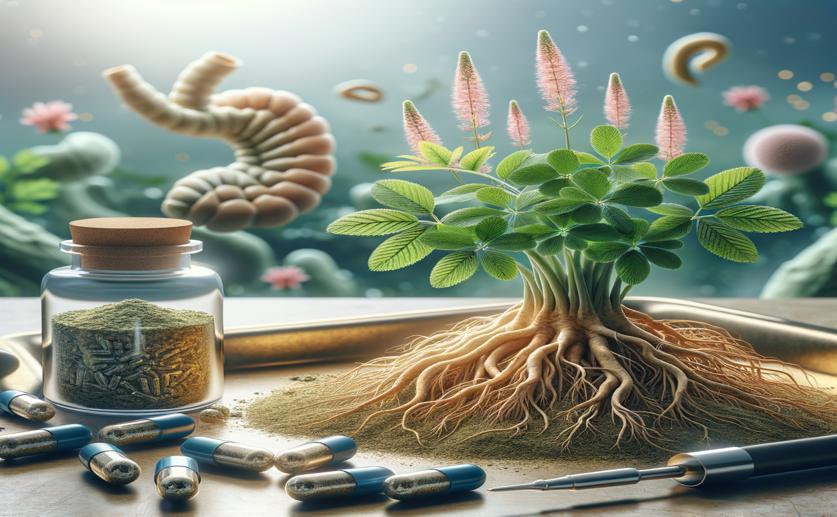
Boosting Low-Dose Metformin with Astragalus Extract by Enhancing Gut Bacteria
Jim Crocker
5th June, 2024

Image Source: Natural Science News, 2024
Key Findings
- Researchers from Capital Medical University found that APS-D1 from Astragalus membranaceus can enhance the effectiveness of low-dose metformin in treating type 2 diabetes
- APS-D1 significantly improved inflammation markers and regulated gut bacteria, enriching beneficial bacteria like Staphylococcus lentus
- The combination of APS-D1 and low-dose metformin boosts diabetes management by promoting beneficial metabolites like l-carnitine, improving blood glucose control and reducing side effects
References
Main Study
1) Structural characterization of Astragalus polysaccharide-D1 and its improvement of low-dose metformin effect by enriching Staphylococcus lentus.
Published 2nd June, 2024
https://doi.org/10.1016/j.ijbiomac.2024.132860
Related Studies
2) A Review of the Pharmacological Action of Astragalus Polysaccharide.
3) Structural features and biological activities of the polysaccharides from Astragalus membranaceus.
4) Recent developments in Hericium erinaceus polysaccharides: extraction, purification, structural characteristics and biological activities.



 1st June, 2024 | Jenn Hoskins
1st June, 2024 | Jenn Hoskins